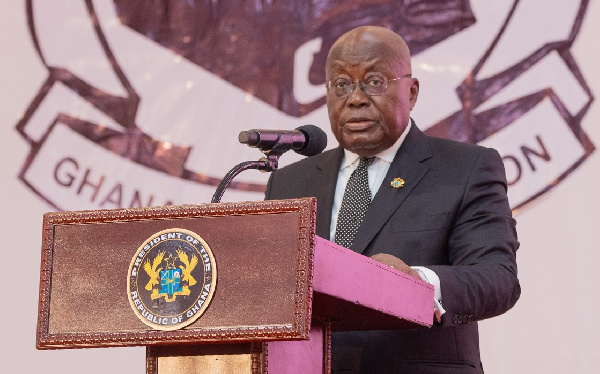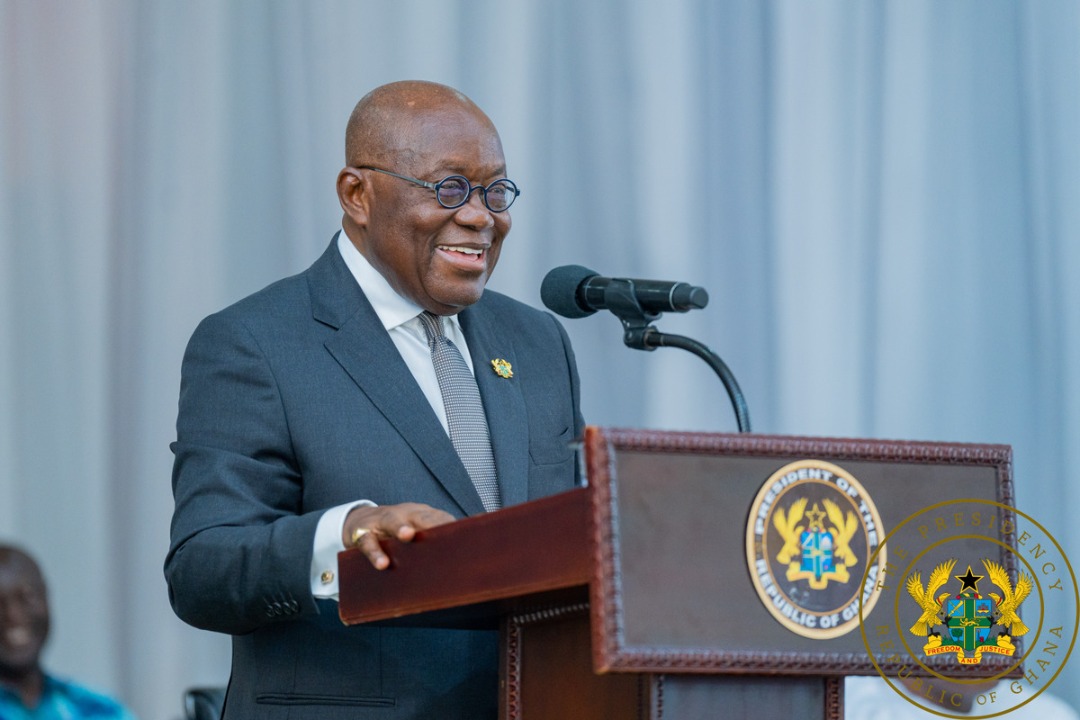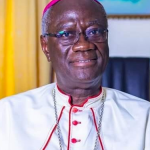President Nana Addo Dankwa Akufo-Addo has justified the financial sector clean-up effort carried out by the Bank of Ghana (BoG) with monetary support from the Finance Ministry.
Mr. Akufo-Addo stated that when he took office in 2017, his administration discovered that the majority of the banks were in crisis.
According to the President, the banks were on “unsustainable artificial life support,” hence a drastic intervention was required to save the whole financial industry.
On Thursday, December 14, President Akufo-Addo remarked at a Bank of Ghana end-of-year cocktail function that
“Over the last seven years, the Bank of Ghana has distinguished itself to the admiration of all well-meaning persons and it has discharged its duties accordingly.
“It has proven to be a sound banker to the government and a safe custodian of the nation’s precious assets, money. It has been an efficient currency manager, a reliable source and regulator, and above all, a dependable lender of the last resort through the banking sector.”
He added “Probably the most difficult my government met on coming into office in 2017 was the state of the banking and financial sector. Many of our banks and financial institutions were in distress and have been kept on unsustainable artificial life support by the central bank. The supervisory departments at the central bank were unfortunately not performing their duties. We were in a desperate situation, and urgent radical measures had to be taken to prevent the collapse of both the financial and banking sectors, the consequences were too dire to come to us.
“The Bank of Ghana, under the new leadership intervened and restored sanity in the sanity and in the process saved the banks and the funds of 4.6 million depositors. The government found some 21 billion Cedis to fund the cleaning-up exercise which has enabled a more robust financial and banking services sector to emerge better to finance the rapid development of our growth.”

Dr Ernest Addison, Governor of the Bank, also lauded his achievement, stating that the central bank under his supervision implemented the necessary sensible policy steps to stabilize the economy and financial sector before Covid hit.
He said that when he took charge in April 2017, the government inherited an off-track International Monetary Fund (IMF) program.
“We put it back on track, and successfully completed the programme in April 2019,” he said.
He went on to say that cleaning up the financial sector was high on the priority list for getting the system back on track.
“The issue of resolving the first, two [insolvent] banks came very early on – I had been in office for barely three months. This was a prior action that was required to proceed to the next stage of an IMF board approval for disbursements to Ghana in August of 2017. Then, barely a year after that, based on the work of the supervision department of Bank of Ghana, we had to close five more banks that were insolvent. Contextually, these banks had previously received excessive liquidity support from the Bank of Ghana, some of which was misused. By the end of 2018, we had closed down nine banks, 23 savings and loans institutions and 347 microfinance institutions. That was the context,” Dr Addison added
UT Bank, Capital Bank, UniBank, The Royal Bank, The Beige Bank, Sovereign Bank, The Construction Bank, Premium Bank, and Heritage Bank were among the nine banks that failed during the financial sector clean up.
Dr. Addison indicated that it was evident that these banks were not viable, and that just providing them with cash would not alter anything.
“We needed to go ahead and resolve them, put them into receivership and then transfer the positive elements. In the case of the first two banks, we transferred the good assets and liabilities to a larger commercial bank. And then, in the second instance, we had to create a bridge bank, putting all the good assets and liabilities of the five banks in one new bank. Given the circumstances of the time, we couldn’t have done it differently,” he said.
On the macro side, he added “we started off with a robust fiscal stance. From 2017 through to 2019, central bank financing of the budget was zero, even though the Bank of Ghana Act pegged it at 5% of the previous year’s tax revenue.”
In that context, he said, inflation declined very quickly. Therefore, the monetary policy rate also came down, and growth rebounded strongly.
“This was the context for the first three years of the current administration,” he stressed.
“By the end of 2019, the financial sector clean-up was completed. The main banks had been strengthened and the weaker banks were out of the system. The banking sector was poised, with the additional capital through the recapitalisation process, to support financial intermediation. Then, out of the blue, we had Covid-19 pandemic.
“The government’s response to the pandemic, was captured by the president’s famous quotation that ‘we know how to bring the economy back, but we don’t know how to bring human lives back’. This was the philosophy behind the government’s approach in dealing with Covid. Therefore, government spending was ratcheted up to support several intervention schemes that were put into place to mitigate the impact of Covid. Obviously, with revenue shortfalls, the financing of these large-scale expenditures became a challenge.
“Prior to that, we had not done any monetary financing, that is financing of the budget had been zero. Therefore, providing financing support to the government was not an easy transition for us to make. We had some good discussions going into it. The finance minister went to Parliament and requested for a suspension of the Fiscal Responsibility Act due to the pandemic. This enabled us to trigger emergency provisions in the Bank of Ghana Act to provide exceptional financing for the government budget. And that’s what we did.
“For me, it was a big reawakening, because I did not foresee that the central bank would be drawn into budget financing. But, given global developments especially with central banks in advanced economies, it seemed like monetary accommodation of fiscal policy to meet Covid expenditures had become part of the norm.
In addition, the IMF itself allocated additional SDRs, which are assets held by central banks, and designated these SDRs to help governments meet their Covid expenditures. This meant the central bank could automatically lend on these additional resources to meet the needs of the budget. This changed the psyche – having to on-lend IMF resources plus triggering the emergency provisions to provide central bank financing to the budget. This was difficult for me.”
















